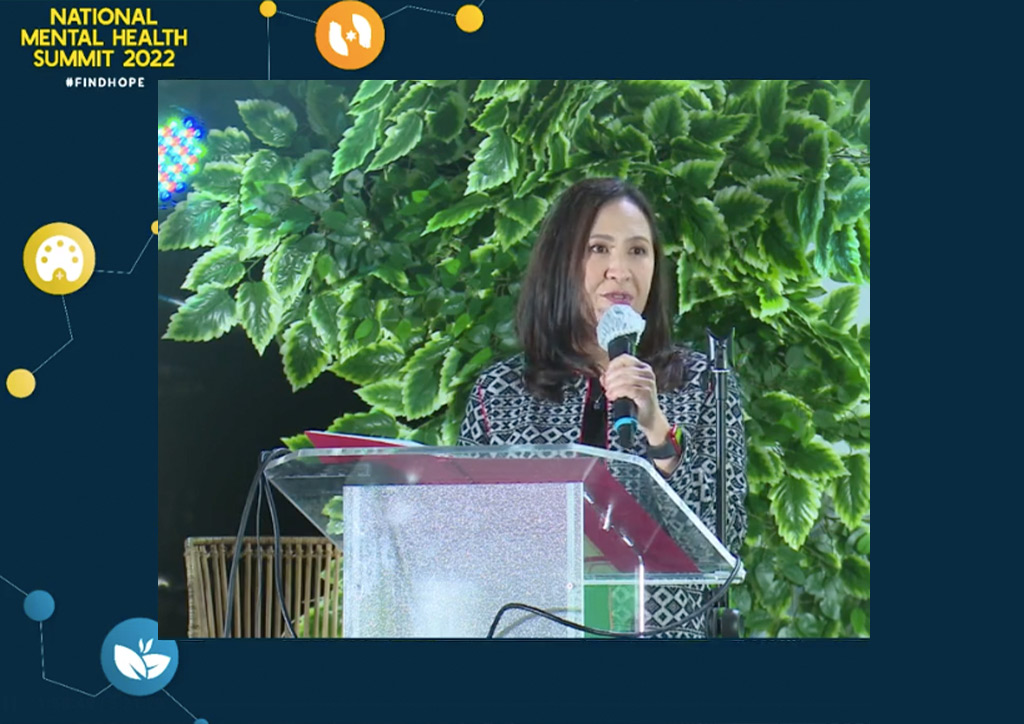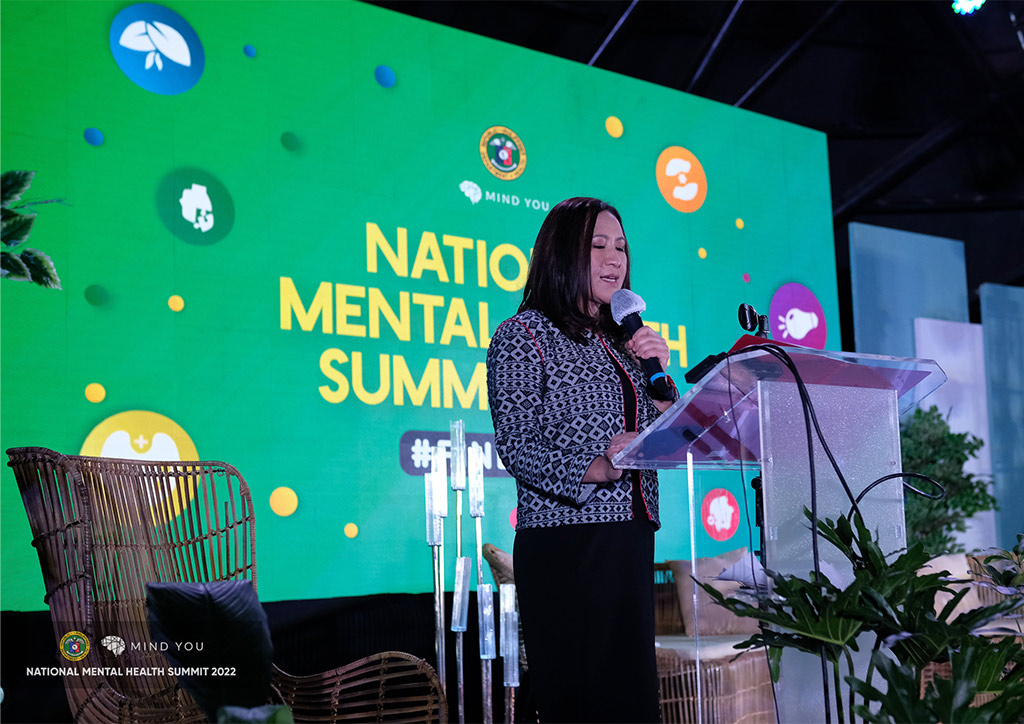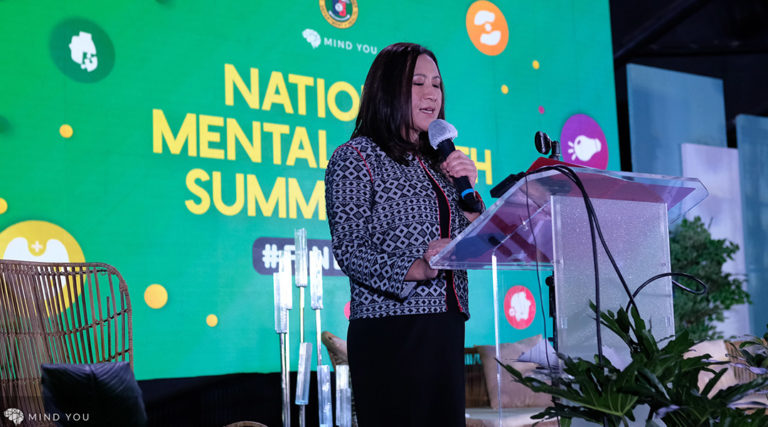Real Talk
QC Mayor Joy Belmonte Puts Mental Health as One of Its Priorities
At the National Mental Health Summit, Quezon City Mayor Joy Belmonte explains how the local government unit has been stepping up in addressing the rising cases of suicide and depression.
As more people openly discuss the importance of mental health, local government units have also stepped up in addressing the issue. These include various projects in their respective cities. And at the recent National Mental Health Summit, Quezon City Mayor Joy Belmonte shared some of the initiatives and projects they’ve spearheaded to address the rising mental health cases in the city.
The issue of mental health is close to Mayor Joy’s heart because of a family incident.

Joy Belmonte on putting Mental Health at the forefront
In her speech, Belmonte recalled how she lost a cousin when he took his own life. “Hushed voices would be within the family circle—blaming his actions on his broken family, unrequited love, and substance abuse. While we will never know for certain why, what struck me most was that my cousin was in agony for so long. He lost all role and purpose in living.”
“Yet, he suffered in silence and after his death, there was more silence. People acted as if nothing had happened,” she recalled.
Joy Belmonte, who is currently in her second term as Quezon City mayor, shared a study that suicide was the leading cause of death between 15 to 24 years old worldwide. Because of this issue back when she was still Vice Mayor, she immediately welcomed the invitation of a leading mental health advocate to host World Suicide Prevention Day.
But this wasn’t without challenges. The QC Mayor revealed that the psychiatrist involved in the advocacy shared that many LGUS turned down the idea. “She had approached several mayors with whom she hoped to partner with. But none were interested because and I quote—the subject was just too dark.”
A big crowd attended the event. It included a walk for a cause, candle lighting, and several seminars.
Joy Belmonte on the alarming rise of suicide cases
Belmonte also spoke about how Quezon City has been trying to document the data of mental health-related cases.
“Preventing suicide and early diagnosis and treatment of the symptoms associated with it are among the goals of mental intervention,” she said. “Sadly, what little data we have paints a grim picture.”
Citing a report from the Quezon City Police data, the city has been experiencing a rise in mental health-related issues. These include cases of suicide in the last five years. The average of suicide cases is around 96 annually.
“From 2018 to 2020 alone, a 52% increase was noted. The same police report states that suicide afflicts more males than females. And that as much as 70 to 80% are below the income bracket.”
While the most common suicide cases involve the age of 25 and above, Belmonte cited a University of the Philippines study. That a growing number of youth want to end their lives from the year 2013 to 2021. Spotty data prevents them from determining the mental health situation in the city. However, they have been making sure to collect the needed data to give them insights that can help them align budgets for emergencies.
Joy Belmonte added that the QC local government is expected to see a rising number of those seeking treatment and help. This is thanks to the projects they have implemented—including the free Mental Health medicine prescription program last August.
While there is more awareness, Belmonte cited the same UP study. Only 6 out of 10 young people who have symptoms of depression sought help. “And of those who did, only a few went to the professional. Most went to a family member or a friend.”

Joy Belmonte on the Mental Health projects of Quezon City
Because of the expenses and stigmatization brought by mental health, Quezon City has been stepping up its efforts to provide more programs that could help in alleviating the situation.
“For some time now, Quezon City has been implementing several mental health programs to identify some of these problems. We have established mental health access hubs or MHAH at the community level. These disperse free prescription medicines to persons with mental health disabilities.”
Moreover, specialists are available for consultation at the hub for those who have no access to treatment. They’ve hired mental health specialists, too, in places like centers dedicated to children in conflict with the law, Bahay Kalinga, Bahay Kalungan, and Bahay Aruga among others.
In addition, Joy Belmonte announced that the Quezon City Council was set to pass a Mental Health Code. It’s the first kind of ordinance in the country thanks to the city council’s push.
“This legislation is warmly welcomed. Stakeholders are active in the crafting of its provisions in a series of multi-sectoral dialogues. The objective of this ordinance is to localize the national mental health act and incorporate into this an expanded version of our city’s existing mental health programs.”
The ordinance will focus on training, awareness, skills, and an establishment of a mental health hotline.
“This ordinance ensures the promotion of mental health wellness. From prevention, treatment, care, and support system. These are accessible to all Quezon City residents regardless of age, gender, and social economic circumstances.”
A budget has already been prepared for its 2023 projects.
Ensuring Quezon City’s wellbeing
On top of the projects they’ve been preparing, Joy Belmonte is aware that the environment and surroundings play a big role in one’s health. Many of the parks are undergoing rehabilitation. Plus, they have been creating more green and open spaces, upgrading sports facilities, and crafting sports programs for interest groups.
In addition, the council has been talking to various stakeholders with regard to housing and fixing heritage sites and libraries. Education is tackled as well—through the scholarships they’ve been giving out.
“This holistic approach to mental health is important because,” she points out.
Additionally, they’ve been working to diversify their social projects to meet the needs of the QC residents. She mentioned the program of Vice Mayor Gian Sotto—the Strong Families Strong Communities.
“We believe his advocacy that the strengthening of the family unit is at the core of a strongly fortified and resilient mind. A mind that is ready to fight and not flee; that finds hope in the darkness. A mind that discovers peace amidst the noise.”
“We also believe that the right to health—and that includes the right to mental health—is a fundamental human right that we must strive to achieve.”
“We have made strides but much has yet to be done. Stigma is enemy number one. This is a barrier to health-seeking behavior even when access is present. Just like in all aspects of the human experience where discrimination exists, ignorance is the great obstacle of every human right.”
Know more about the importance of mental health in these stories:
How Jerika Ejercito Overcame Depression
7 Ways Partners Can Support Moms with Postpartum Depression and Anxiety
It’s OK To Cry: Stand Up For Mental Health





